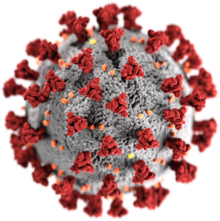2020-03-18
These are the times historians write about
https://reb00ted.org/society/20200318-historians-are-watching/

When the Berlin Wall fell, I didn’t quite make the connection. In hindsight, it was the first major event happening in my lifetime that would get a big chapter in the history books, but I didn’t quite realize it at the time. History was the stuffy thing they quizzed you in school about, not something that happened in the world where you and I barbecued in the sunshine.
There have been several history-book-level events since: the disintegration of the Soviet Union; the emergence of the internet; the 9/11 attacks; the financial crisis in 2008; but not all that many.
Now, the global Coronavirus pandemic is another one. And I fear the chapter on it in future history books will be longer, containing more death and human misery, but also more disruptive impact than any of the others that happened in my lifetime.
The governor of California mused today that schools in the state – closed since yesterday – would probably not reopen for this school year. That sounds likely to me. More so, I don’t think they will open on time for the next school year either, and we’ll be hunkered down and “sheltering in place” for many months to come. I can see only two ways to get out of this mode:
- We have a vaccine – which everybody tells us is at least a year away; or:
- We have herd immunity – which would take years if the limiting factor is critical care beds, and it is.
- (Of course there is also “damn the torpedoes and who cares if millions die” but I hope that won’t be what happens in most places.)
So: what will the world look like if most stores, and restaurants, and hotels, and movie theaters, and conferences, and what have you, have been closed for a year or more? If you haven’t been able to visit your friends across town, or your family across the country for a year or more? If kids grow up without play dates, or without ever hanging out at the mall or the soccer game? If you haven’t been able to meet new people, or fall in love, for a year or more? Or: what if all of this gets somehow replicated on-line and life mostly moves into cyberspace as countless sci-fi novels have it? Whichever it is: as small as the virus is, its impact is as big.
And then there is economics. If China has record-low pollution right now (because there has been far less demand for coal-based electrical power), so low that it supposedly has saved the lives of 77,000 people already, and the canals in Venice have cleared for the first time in living memory so you can see the fish in them, this tells you more about what the GDP numbers will look like than any bespectacled talkshow guest ever will. As my friend Sari says, that’s great for the planet. Not so great if you have a 401k retirement plan or want to keep a job. The economic impact, and the ripple effect from there, will likely take up far more pages in the history books than even the pandemic itself. It’s such a big disruption.
We are in unchartered territory. Something like this has never happened in human history. The historians are going to have rows of unfilled PhD positions, so much is there to write about. For the rest of us: hang on tight, and throw out all preconceived notions of what your life should be like, because whatever you thought it was going to be 3 months ago is not going to happen. There is a chance it will be much better – the 77,000 certainly will think so! – but that’s not guaranteed even for those who don’t die of the virus. I shudder thinking about when real shortages start to happen, and they will.
We are looking at hard work and much hardship. But perhaps a better chance to save the planet than even 3 months ago was conceivable. The future is more uncertain than it has ever been in my lifetime. Fear permeates everything, and much pain is certain. But maybe, maybe, much good will come out of it, too. I tell myself: let’s try to focus on that.
Onwards.